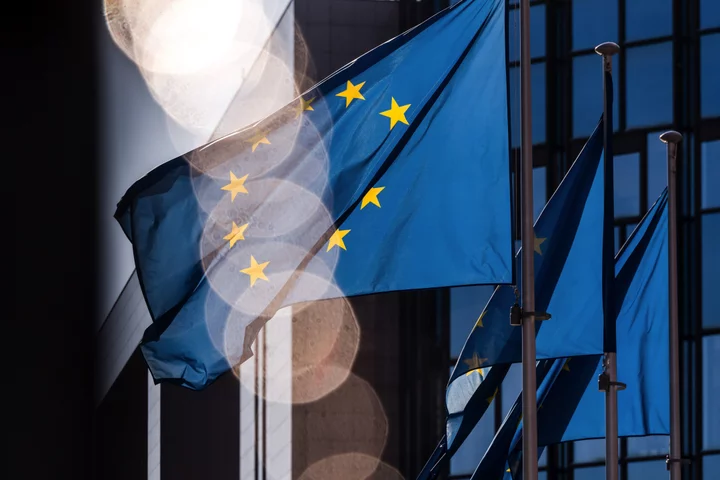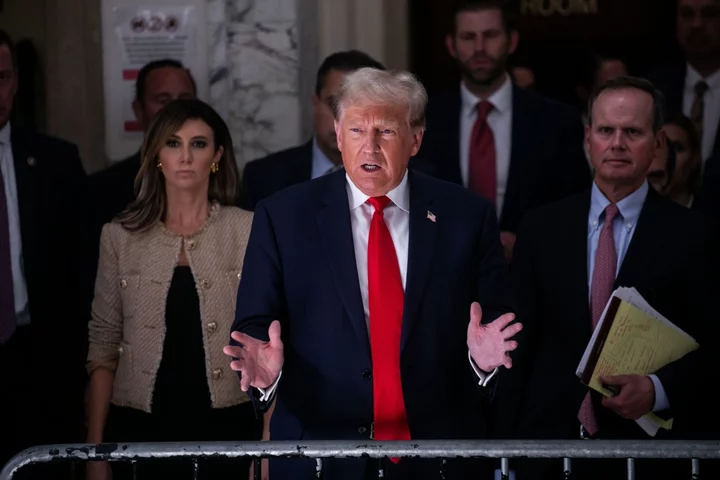The European Union will propose new oversight on critical technologies that can be used for military purposes and it will aim to table by the end of the year a proposal to curb outbound investments that could threaten the bloc’s security.
The European Commission, the EU’s executive arm, will propose as part of its new security strategy a list of dual-use technologies for risk assessment that could be adopted by member states as soon as September, according to a draft of the document seen by Bloomberg News. It will also seek to coordinate export controls across the bloc.
The EU is seeking to strengthen the security tools at its disposal as countries such as China and Russia increasingly use trade and the control of critical supply lines to further political and military goals. The text, which is still subject to change, will be unveiled on Tuesday.
“Russia’s war of aggression against Ukraine showed how over-reliance on any single country, especially when they have systemically divergent models and interests, reduces Europe’s strategic options and puts our economies and citizens at risk,” according to the document. The EU “now needs a comprehensive and strategic approach to economic security, de-risking and promoting technological edge in strategic sectors,” it said.
The strategy identifies a series of potential risks the bloc could face, including the targeting of its supply chain and its critical infrastructures. The commission listed tools at its disposal to counter them and is considering the reinforcement of its arsenal with new investment controls to restrict the outflow of money and know-how in critical sectors that may benefit strategic rivals such as China.
Some officials worry that the commission’s timeline is too optimistic and sets unrealistic expectations.
The proposal is an early look at the measures the EU wants to take to enhance its security as a bloc, but more detailed plans — especially on export controls — will come later, according to a person familiar with the matter, who asked not to be identified because the plans are private.
The commission and member states will examine which security risks can result from outbound investments and will propose new measures to subject goods that could enhance military and intelligence capabilities by the end of the year, according to the document. “It will set up a new dedicated group of member states’ experts, to assist in these tasks, building a new structured, confidential cooperation mechanism,” according to the text.
EU Summit
Member states including Germany and France however remain wary of any plans that would interfere with their competences on national security, according to an EU official. In addition, they don’t want to adopt measures that could restrict investment flows at a time when the bloc is seeking to conclude new trade deals. The topic will be discussed by EU leaders when they meet in Brussels next week.
Member states are in favor of a strategy that “provides proportionate, precise and targeted answers to security challenges while ensuring a balance between an open economy and the defense of the union’s interests,” according to the latest draft summit conclusions.
To boost the EU’s competitiveness and supply chains, the commission will also propose a new platform to support critical and emerging strategic technology. It warned that “more investments are urgently needed both to ensure EU’s leadership” in various technologies. It will also report options to support dual-use technology due to funding gaps.
The EU is also proposing to coordinate export controls as they are currently implemented nationally and differently by member states.
--With assistance from Jillian Deutsch.
Author: Samuel Stolton, Jorge Valero and Alberto Nardelli









